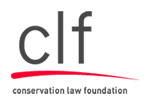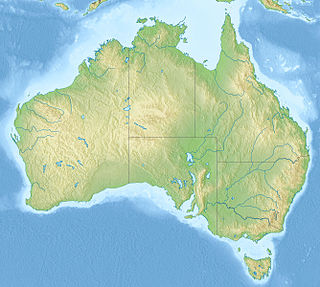
The Great Barrier Reef is the world's largest coral reef system, composed of over 2,900 individual reefs and 900 islands stretching for over 2,300 kilometres (1,400 mi) over an area of approximately 344,400 square kilometres (133,000 sq mi). The reef is located in the Coral Sea, off the coast of Queensland, Australia, separated from the coast by a channel 160 kilometres (100 mi) wide in places and over 61 metres (200 ft) deep. The Great Barrier Reef can be seen from outer space and is the world's biggest single structure made by living organisms. This reef structure is composed of and built by billions of tiny organisms, known as coral polyps. It supports a wide diversity of life and was selected as a World Heritage Site in 1981. CNN labelled it one of the Seven Natural Wonders of the World in 1997. Australian World Heritage places included it in its list in 2007. The Queensland National Trust named it a state icon of Queensland in 2006.

Conservation in Australia is an issue of state and federal policy. Australia is one of the most biologically diverse countries in the world, with a large portion of species endemic to Australia. Preserving this wealth of biodiversity is important for future generations. 25% of Australia is managed for conservation.

The Australian Conservation Foundation (ACF) is Australia's national environmental organisation, launched in 1965 in response to a proposal by the World Wide Fund for Nature for a more co-ordinated approach to sustainability.
Woodside Energy Group Ltd is an Australian petroleum exploration and production company. Woodside is the operator of oil and gas production in Australia and also Australia's largest independent dedicated oil and gas company. It is a public company listed on the Australian Securities Exchange and has its headquarters in Perth, Western Australia. In the 2020 Forbes Global 2000, Woodside was ranked as the 1328th-largest public company in the world.

Environmental impact assessment (EIA) is the assessment of the environmental consequences of a plan, policy, program, or actual projects prior to the decision to move forward with the proposed action. In this context, the term "environmental impact assessment" is usually used when applied to actual projects by individuals or companies and the term "strategic environmental assessment" (SEA) applies to policies, plans and programmes most often proposed by organs of state. It is a tool of environmental management forming a part of project approval and decision-making. Environmental assessments may be governed by rules of administrative procedure regarding public participation and documentation of decision making, and may be subject to judicial review.

Conservation Law Foundation (CLF) is an environmental advocacy organization based in New England, United States. Since 1966, CLF's mission has been to advocate for New England's environment and its communities. CLF's advocacy work takes place across five integrated program areas: Clean Energy & Climate Change, Clean Air & Water, Healthy Oceans, People & Justice, and Healthy Communities. CLF's mission statement is to "use the law, science, and the market to create solutions that preserve natural resources, build healthy communities, and sustain a vibrant economy." CLF focuses on promoting renewable energy and fight air and water pollution; building sustainable fishing communities and protect marine habitat; promoting public transit and defend public health; achieving environmental justice; and sustaining a vibrant, equitable economy.

The Environment Protection and Biodiversity Conservation Act 1999(Cth) is an Act of the Parliament of Australia that provides a framework for protection of the Australian environment, including its biodiversity and its natural and culturally significant places. Enacted on 17 July 2000, it established a range of processes to help protect and promote the recovery of threatened species and ecological communities, and preserve significant places from decline. The Act is as of September 2024 administered by the Department of Climate Change, Energy, the Environment and Water. Lists of threatened species are drawn up under the Act, and these lists, the primary reference to threatened species in Australia, are available online through the Species Profile and Threats Database (SPRAT).
Greenpeace Australia Pacific (GPAP) is the regional office of the global environmental organisation Greenpeace. Greenpeace Australia Pacific is one of Australia's largest environmental organisations.

The Australian environment ranges from virtually pristine Antarctic territory and rainforests to degraded industrial areas of major cities. Forty distinct ecoregions have been identified across the Australian mainland and islands. Central Australia has a very dry climate. The interior has a number of deserts while most of the coastal areas are populated. Northern Australia experiences tropical cyclones while much of the country is prone to periodic drought. This dry and warm environment and exposure to cyclones, makes Australia particularly vulnerable to climate change -- with some areas already experiencing increases in wildfires and fragile ecosystems.

The Great Barrier Reef is the world's largest reef systems, stretching along the East coast of Australia from the northern tip down at Cape York to the town of Bundaberg, is composed of roughly 2,900 individual reefs and 940 islands and cays that stretch for 2,300 kilometres (1,616 mi) and cover an area of approximately 344,400 square kilometres (133,000 sq mi). The reef is located in the Coral Sea, off the coast of Queensland in northeast Australia. A large part of the reef is protected by the Great Barrier Reef Marine Park.
Ecojustice Canada, is a Canadian non-profit environmental law organization that provides funding to lawyers to use litigation to defend and protect the environment. Ecojustice is Canada's largest environmental law charity.
Environmental Defenders Office (EDO) is an Australian NGO that encourages, funds, and provides lawyers and legal support for litigation, law reform, and community engagement on climate change and environmental issues. EDO formed in late 2019 with the merger of eight separate state and territory organisations into one national organisation. Topics of interest to EDO include: climate change, biodiversity, water, and healthy communities.
The Environmental Defender's Office (NSW) in Sydney, New South Wales, was one of nine EDO offices located across Australia, formerly known as the Australian Network of EDOs (ANEDO).
The Environmental Defenders Office (Qld) Inc. was a non-profit, non-government Community Legal Centre which was established in 1989. and is one of nine independent Environmental Defenders Offices located across Australia which collaborated in a loose network known as the EDOs of Australia.
The Scarborough gas field is a natural gas field located in the Indian Ocean north-west of Exmouth on the coast of Western Australia. The total Contingent Resource of the Scarborough gas field is around 7.3 trillion cubic feet. In 2018 Woodside bought ExxonMobil's 50% share of the retention lease, adding to the 25% it had acquired from BHP in 2016. Woodside now owns 75% of the retention lease and are operator of the joint venture, with BHP retaining the final 25%. On 7 April 2022, the company announced that final Australian federal and state government approvals for the project had been received.

The Carmichael coal mine is a coal mine in Queensland, Australia, owned by the Adani Group's Australian subsidiary Bravus Mining & Resources. It was approved by the government in 2014 and has been operational since December 2021. The mine was initially planned to produce 60 million tonnes of coal per year; however, funding difficulties resulted in downsizing the planned mine to produce 10 million tonnes per year. Construction of the mine started in June 2019, and on 29 December 2021 the first coal shipment from the Carmichael Mine was ready for export.
The Department of the Environment and Energy (DEE) was an Australian government department in existence between 2016 and 2020.
Director of National Parks is a Commonwealth corporate entity responsible for the management of a portfolio of terrestrial and marine protected areas proclaimed under the Environment Protection and Biodiversity Conservation Act 1999.

Climate change litigation, also known as climate litigation, is an emerging body of environmental law using legal practice to set case law precedent to further climate change mitigation efforts from public institutions, such as governments and companies. Finding that climate change politics provides insufficient climate change mitigation for their tastes, activists and lawyers have increased efforts to use national and international judiciary systems to advance the effort. Climate litigation typically engages in one of five types of legal claims: Constitutional law, administrative law, private law, fraud or consumer protection, or human rights.
The Barossa Gas Project is an offshore gas and condensate oil field under construction by Santos Limited in Australian waters in the Timor Sea around 300 km (190 mi) north of Darwin in the Northern Territory. Upon completion in late 2025, it is estimated to be the most carbon-intensive gas development in Australia.









